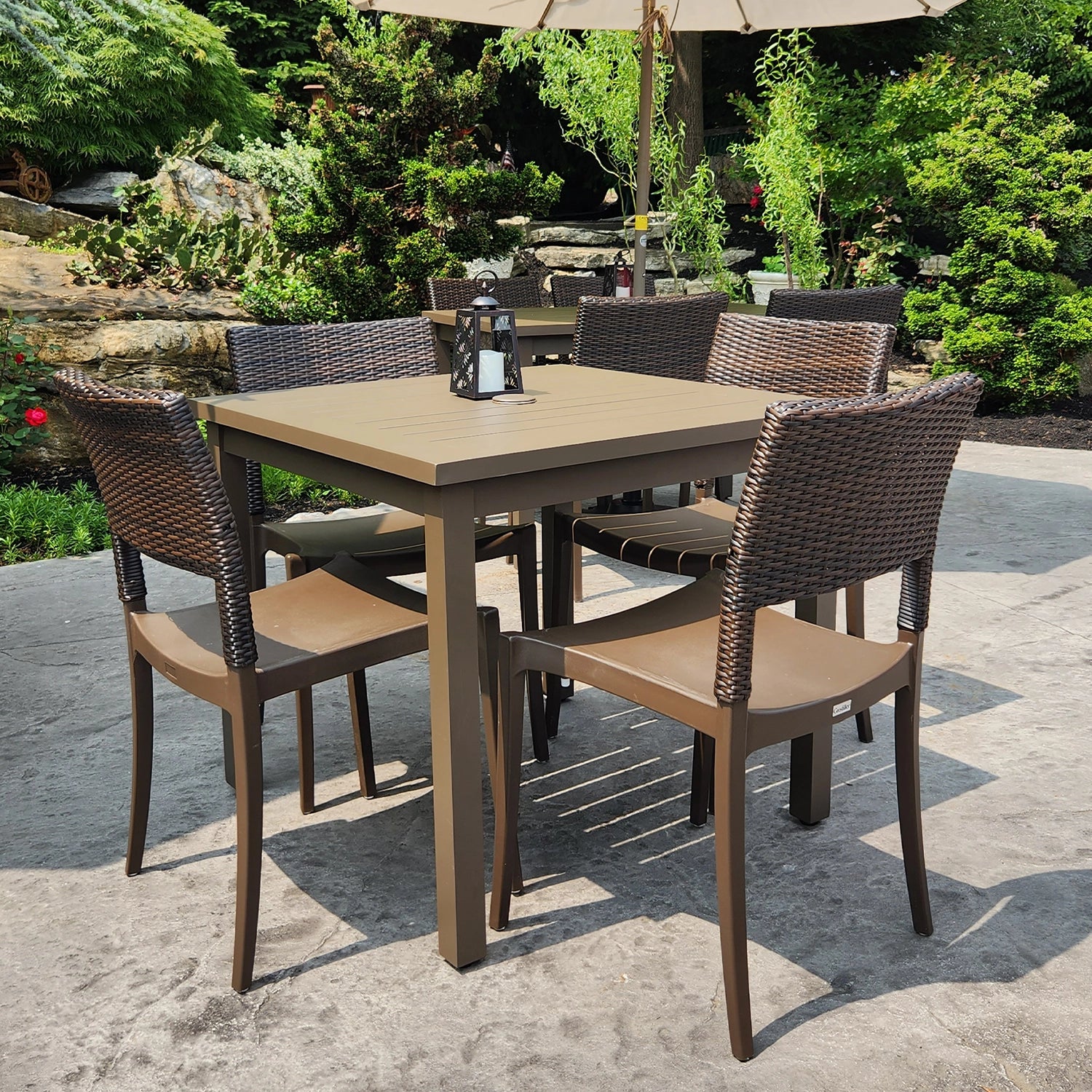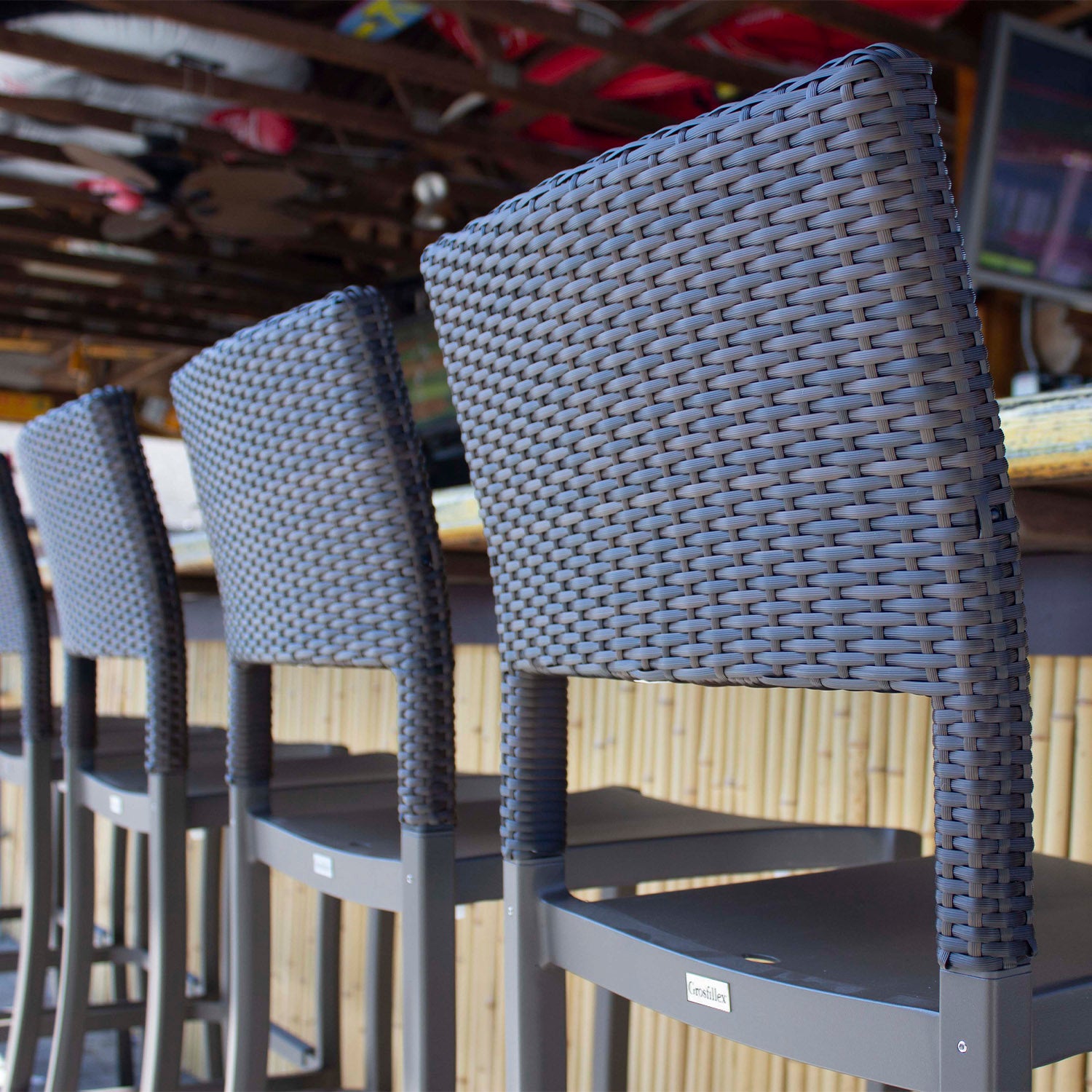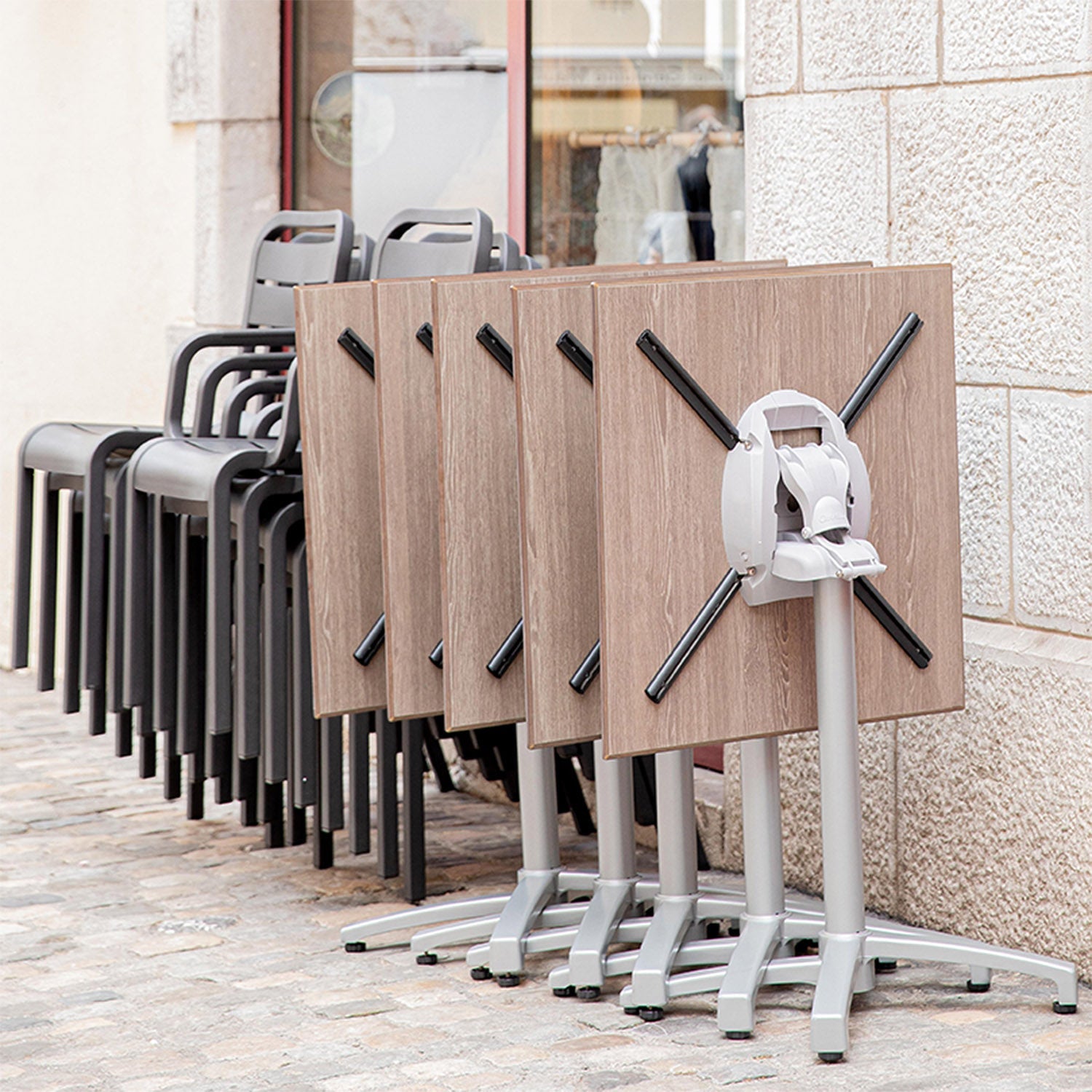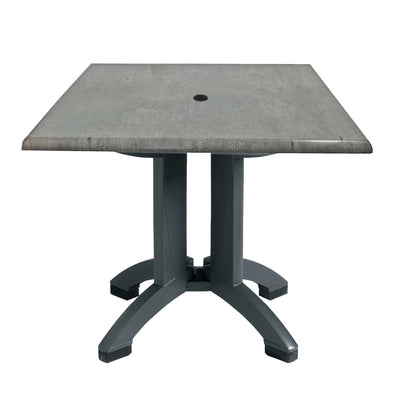On the surface, figuratively, commercial tables are popular for their durability, versatility, and unique aesthetic qualities. Literally, tabletop shapes play a crucial role in decision-making for commercial spaces because they influence both aesthetic appeal and functionality, helping individuals create visually pleasing and practical environments. Rounded shapes often evoke comfort and relaxation, while angular shapes can suggest modernity and efficiency. The shape of a table can significantly impact its utility and the overall look of your space, guiding choices that align with personal style and usage.
When addressing the specific needs of your site, the shape of your tabletops subtly anchors the rest of your outdoor resin furniture choices. Table shape exhibits a welcoming appearance for guests and enables an efficient workflow for employees depending on your selection. Consider how tabletop shapes accommodate the number of people and contribute to the overall design of your commercial setting.

Square, rectangular, and round tabletops each have several key factors. Bear in mind these dimensions when picking the shape that best fits your space and business conditions.
Round Table Benefits

Enhances social interaction: promotes a more inclusive environment by allowing everyone to face each other to facilitate conversation and creates a more intimate setting. Seats are usually evenly spaced around the table, which achieves a balanced appearance.
Space Efficiency: better suited for smaller or irregularly shaped rooms, fitting into corners or snug spaces more easily. Round tables can soften an area and coordinate with other curved furniture.
Safety: The lack of sharp corners reduces the risk of injury, making round tables a good choice for commercial spaces where there will be small children or high foot traffic.
Flow and Movement: Round tables generally allow for smoother traffic flow around the table and are easier to navigate, making them ideal for tighter spaces.
Square Table Benefits

Compactness: Square tables are great for compact lounge areas and small dining zones where maximizing space is important. These layout solutions offer a clean and symmetrical look. While balance may be your goal, also think “outside the square” using diagonal placement to gain dynamic angles.
Defined Seating: The corners of a square table can help define seating arrangements, making it easier to determine how many people can comfortably sit around the table. Traditionally, four placements are the magic number, although larger tabletops can accommodate eight seats for overflow attendance.
Flexibility in Use: Square tables are versatile and can be used in various settings from dining areas to outdoor meeting spaces and social gatherings. They are modular and can be arranged into larger squares or a variety of connected configurations suitable for custom layouts.
Modern Aesthetics: Square tables often lend a contemporary or minimalist feel to a space that provides a more structured look, especially when designed with sleek, clean lines.
Rectangular Table Benefits

Versatility: Rectangular tables are incredibly versatile and can accommodate additional people, making them ideal for larger dining areas or gatherings. Guests may appreciate the ability to stretch their legs with more room between placements.
Space Optimization: They can fit well in long, narrow spaces and can often be paired with other tables or add-on leaves to adjust the size. They offer flexibility in seating arrangements allowing for additional chairs along the length of the table, adapting to different group sizes.
Formal and Functional: Rectangular tables often provide a more formal appearance yet are suitable for both casual and traditional settings. They also work well in settings where you want to align with other furniture - both classic and modern decor - depending on the tabletop style and material selection.
Easy to Fit Multiple Settings: These tables can be arranged against walls or in the center of a space and can be easily paired with additional seating or other furniture pieces. Rectangular shapes are perfect for dining areas, conference rooms, and larger living areas and fit well in areas with clear pathways and defined spaces.
Conclusion
The best table shape depends on your space, the number of people you need to seat, the overall style of your space, and how you plan to use the table. Each profile offers distinct advantages and influences the ambiance and functionality of your space while “putting corners” on or “rounding out” your preferred aesthetic.
Contact us today to learn more.

